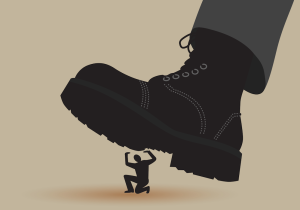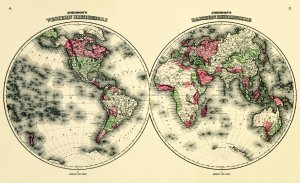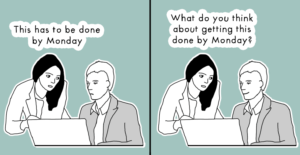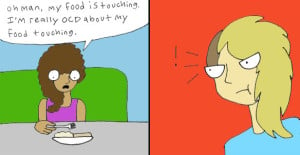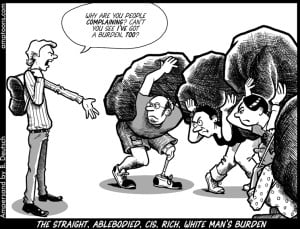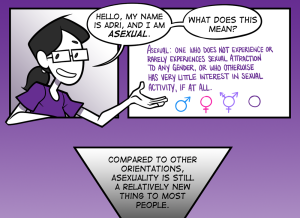I encountered a lot of classist attitudes while growing up with my working-class, single mom.
People felt comfortable offering her unsolicited advice on how to run her life. They wondered aloud if my brother and I were “going to be okay.” And worst of all, they blamed people like us for the trappings of a faulty economic situation.
It wasn’t until years later that I realized just how widespread and damaging those attitudes were. Poor people face public scrutiny and criticism for telling the truth about their lives all the time.
They’re blamed for their own lack of wealth and shamed when they reach out for help. Their financial standing is held against them when they try to move up the economic ladder.
They’re seen as singular people who have gotten themselves into sticky and unfortunate situations – and that, sadly, makes it easier for other people to disassociate from their problems and decline opportunities to help them.
In communities across the country, people across diverse backgrounds and political identities have latched on to certain myths about poverty, absolving themselves of responsibility for what is, at its root, a cultural – and not individual – problem.
The US is one of the richest nations in the world, but wealth is hard to come by here and victim-blaming myths about the poor are deeply embedded into our cultural consciousness.
These myths stop us from recognizing the institutions, political systems, and community behaviors that keep all of us down.
It’s time to stop blaming poor people for poverty. It’s time to stop pointing our fingers at individuals when we should we pointing them at lawmakers and community leaders. It’s time to embrace and empathize with folks who are struggling with financial insecurity.
It’s time to demand a world in which none of us worry about finding work, putting food on the table, or having to scrape by – or not being able to.
The first step to doing all that is stopping myths about poverty in their tracks – and uncovering the failings of our culture, our economy, and our political system that they obscure.
Myth #1: We All Have Equal Opportunity
America has, for a long time, been hailed as a land of dreams. The notion that someone could be born poor and die rich, or immigrate here and become a leader in their industry, is still widespread and, for the most part, subconsciously accepted by people who live here.
But this is rarely true.
Right now, the disparity between America’s elite and the middle-class and poor is larger than ever. The richest 1% of Americans own 40% of this country’s wealth. Nearly half of American children are growing up in homes where their parents are struggling to make ends meet. Many Americans are working two jobs, and others are unemployed or underemployed.
But a growing discourse about these issues haven’t led us to a solution. Widespread disparities between the richest and poorest Americans hasn’t stopped us from being inundated with hurtful myths about poverty and class.
Despite overwhelming evidence that our economy is failing us, people still insist that those suffering the most from poverty and financial insecurity have a fair shot.
When someone is economically privileged, it’s easy to think about how hard they’ve worked and write it off as the solution to every poor person’s problem. It’s easy to think that since they figured it out, or took a risk and lost it all and still landed on their feet, everyone else should be able to. But that doesn’t make it true.
If we lived in a land of equal opportunity, every child – no matter where they were born or how they grew up – would have a shot at going to a four-year, private university respected across the country. Instead, data shows that kids who grow up poor are less likely to pursue or complete a higher education.
If we lived in a land of equal opportunity, every hardworking American would be able to snag a low-wage job, scrimp and save their way to a stable life, and move up as they gain experience.
But instead, people are raising families on a substandard minimum wage in abusive and exploitative jobs for mega-rich corporations. And no matter how hard they work, they can’t find a source of social mobility.
And for workers across industries and pay grades, wages are, for the most part, stagnant in the face of inflation and rising cost-of-living.
If we lived in a land of equal opportunity, working toward our dreams would ultimately pay off for all of us.
And yet, despite their degrees and their inevitable passion for their field, half of college grads aren’t working jobs that utilize their degrees. For many, those jobs are low-quality, low-wage positions. (The cherry on top? Debilitating student debt.)
Our society is rigged, and the people at the bottom are suffering for it.
The longer we allow ourselves to believe that everyone has a fair shot as things stand right now, the further we get from reality.
Myth #2: Poor People Just Aren’t Trying Hard Enough
People are very interested in the lives of poor people.
Legislators want to know what people on food stamps are buying at the grocery store. Strangers question why the homeless have cell phones. For all sorts of people struggling financially, facing questions and criticism from their community and peers is commonplace.
People feel comfortable prying into the lives of the poor to judge and blame them for their own situation – and often, that’s because people see poverty as a punishment, and they see the poor as people who are punished for just not trying hard enough.
They’re not studying hard enough at school. They’re not grinding hard enough at work. They’re not applying for enough jobs.
Our culture sees the poor as a lazy breed. That couldn’t be further from the truth.
The truth is that poor people do work, and often harder and more frequently than those with more money.
Despite the cultural message that people on welfare, food stamps, and other forms of public assistance are “cheating the system” to live on everyone else’s dime, data shows that those same people are trying to find work, juggling various low-paying jobs, or otherwise unable to make ends meet despite wanting to.
Also, it’s worth pointing out, just for posterity, that making ends meet with the use of these programs still means living a lifestyle below the common standards of living.
The double-whammy is that even when poor people are working hard, putting themselves through educational programs, and seeking help to lift themselves up, our culture continues to blame them for their lack of capital.
Even if someone is on welfare but has a job, even if they’re struggling to pay rent while they work in the only part-time job they could find, even if they’re homeless and nobody will hire them because they can’t groom or care for themselves according to our standards, our culture will blame them for not being wealthy.
No matter what poor people do, they’re constantly being told they don’t try hard enough.
This myth also renders invisible the ways in which the people with the least resources in our society still miss out on opportunities because they lack connections, know-how, or insider know-how about their field that people with more resources are often able to cultivate.
A wealthy and poor student could pursue the same business degree at the same college and still end up in wildly different career tracks – and one reason why could be that the wealthy student had the financial capability to start a business, the connections to land a premier job or internship, or a family in his field that was able to guide him in the right direction as he navigated life in a post-grad world.
Two single moms who work at the same company could find themselves competing for a promotion, but the woman who can afford a babysitter and admission to high-profile trainings and conferences might clinch it because of the added knowledge she was able to garner.
It wouldn’t necessarily be because of her energy and her enthusiasm – it would be about what experiences she was able to access that her poorer colleague simply couldn’t afford.
The assumption that poor people are lazy stems directly from the idea that poverty and financial vulnerability are problems we make for ourselves as well as problems we can overcome by working hard.
But poverty is a social ill, and it is created and perpetuated by institutions, corporations, and ideologies that do all they can to grow wealth for the rich and shrink opportunities for the rest of us.
Why These Myths Matter
It’s been widely accepted by feminists that stereotypes and generalizations are damaging and that biases against marginalized folks can oppress and destroy them.
Myths about poor people do that, too.
And even worse, those myths tell us that the people to blame for poverty and homelessness are the people who are poor and homeless.
It’s easy to pretend that if homeless people were out applying for jobs instead of begging for change, they’d have enough money to live.
It’s not as easy to challenge ourselves to imagine what we would do if someone who slept on the street and didn’t have any of the accoutrements of a professional life asked us to hire them, and even harder still to imagine when they would find the time or resources to look for jobs, buy clothing for interviews, or even print copies of their resume.
It’s easy to tell ourselves that we are different from the poor and the homeless by blaming their poverty on them. It’s harder to ask ourselves what kind of support mechanism could help them get to where we are, and what we could do or give up to make it happen.
When we blame poor people for poverty, we allow ourselves to think that we did something right, and thus we’ll never be poor like them.
Seeing poverty as an individual problem and an individual failure keeps us from recognizing the real cultural problems that perpetuate it in this country.
There are policies and cultural practices in place in our society that enable, fuel, and perpetuate poverty, ranging from financial instability to extreme poverty and homelessness.
A lack of support resources outside of federal assistance leave a lot of families and individuals stranded – and marginalized groups like women, youth, people of color, and LGBTQIA+ people face even more ostracization and discrimination when trying to access available community-based resources that can keep them on the streets or otherwise suffering.
Myths about poverty and poor people make it easy for us to pretend we could never be homeless, suffering, or struggling – and in turn, we blame the poor for their own challenges and perpetuate oppressive classist power structures.
But even worse, we stop the conversation about how communities, institutions, and lawmakers can come together to help eradicate poverty and more fairly and equitably distribute wealth when we commit to believing in them.
Beyond blame, these myths about poor people stop us from seeing poverty as a cultural problem – and that makes it impossible to solve.
When we allow ourselves to recognize the barriers poorer folks can face to accessing high-quality education and accept that our education system fails the most financially vulnerable children within it, we can build a nation where every child can reach their full potential, no matter what.
Once we agree that many of America’s labor practices – from subpar wages to inhumane working conditions – are keeping those who need opportunities the most at the bottom of the food chain, we can build a nation where hard work in any field means you can put food on the table, pay the bills every month, and put a roof over your head.
As soon as we recognize that our economy is stifling creativity, innovation, and passion by pushing talented people out of their chosen fields and forcing them to make impossible economic decisions, we can build a nation where workforces across industries have the capacity to support their workers – and the will to do it right.
Our society’s myths about poor people couldn’t be further from the truth – and the sooner we get over them, the sooner we can push for progress.
[do_widget id=”text-101″]
Carmen Rios is a Contributing Writer for Everyday Feminism. She splits her time disparately between feminist rabble-rousing, writing, public speaking, and flower-picking. A professional feminist by day and overemotional writer by night, Carmen is currently Communications Coordinator at the Feminist Majority Foundation and the Feminism and Community Editor at Autostraddle. You can follow her on Twitter @carmenriosss and Tumblr to learn more about her feelings.
Search our 3000+ articles!
Read our articles about:
Our online racial justice training
Used by hundreds of universities, non-profits, and businesses.
Click to learn more


